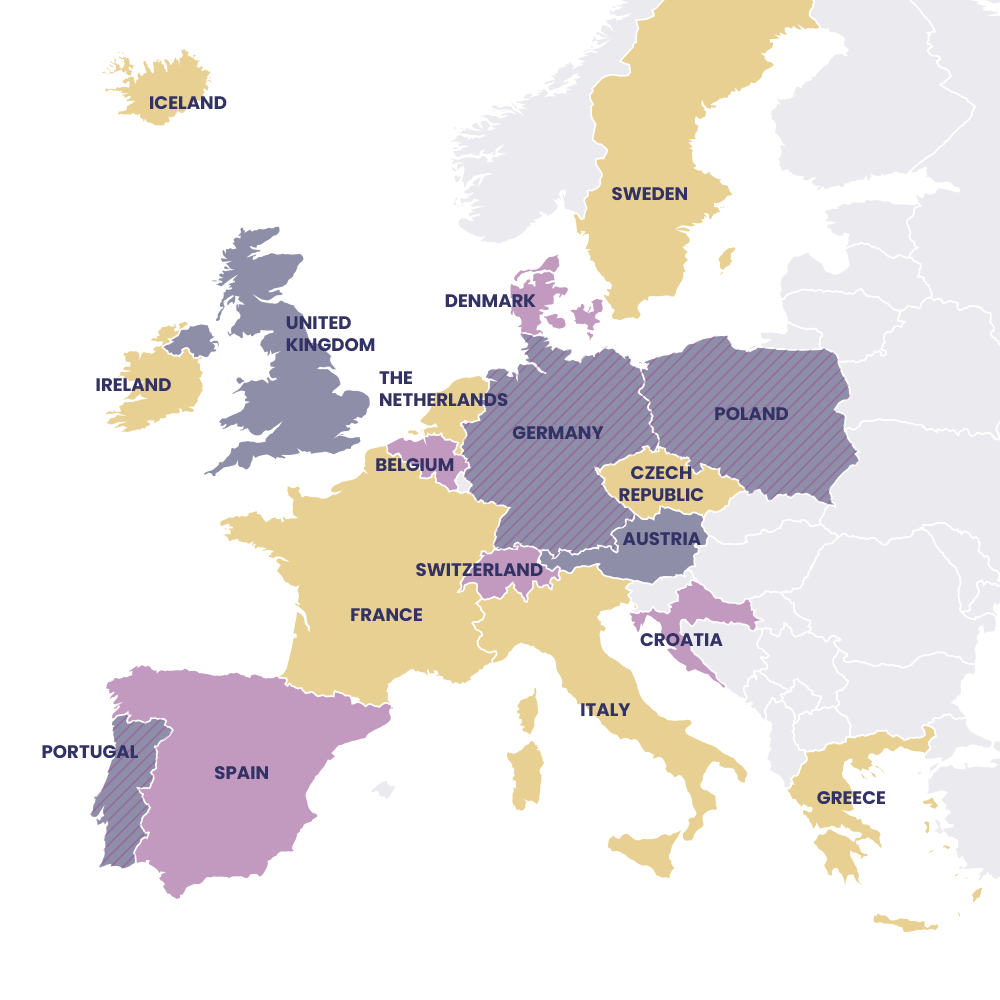Work streams, areas of expertise, and work packages
The general methodological idea of SP-EU is to first co-create an adaptation of the Social Prescribing (SP) intervention based on the needs of the following groups:
- LGBTIQ+ people
- Refugees and first-generation immigrants
- Older people living alone
This adapted intervention will then be tested in a pragmatic randomised controlled trial (RCT). In parallel, we will explore enabling and disabling factors to implement SP in many European countries, namely in the comparative qualitative study. Finally, the results from the trial and comparative qualitative study will be discussed with representatives of people in vulnerable situations, service providers, and policy makers to develop sustainable policy concepts and prepare the exploitation of SP-EU to achieve the best possible impact.
To achieve our project’s objectives, we structure the work into the following four work streams:
- The co-creation of an adapted SP intervention for our three target groups will be conducted at ten hubs in eight European countries (Belgium, Croatia, Denmark, Germany, Poland, Portugal, Spain, and Switzerland).
- The RCT will also be conducted at these ten hubs (Belgium, Croatia, Denmark, Germany, Poland, Portugal, Spain, and Switzerland).
- The comparative qualitative study (also called “qualitative analysis”) will be conducted in five European countries that are at different stages regarding the implementation of SP – from no implementation to full implementation (Austria, Germany, Poland, Portugal, and the UK).
- Dissemination, exploitation, communication and policy work (DisCo): The consortium’s efforts in these tasks will be supported by the Implementation Board (IB), which involves representatives from eight countries across Europe (the Czech Republic, France, Greece, Iceland, Ireland, Italy, the Netherlands, and Sweden).
Hence, our work plan includes representatives from 18 European countries, with 11 countries as official members of the SP-EU consortium.

Methodology
-
Co-Creation + RCT
-
Comparative Qualitative Study (Qualitative Analysis)
-
Co-Creation + RCT + Qualitative Analysis
-
Implementation Board
Over the five-year project duration, SP-EU is divided into 19 work packages (WPs). These WPs are clustered under the following areas of expertise – highlighted in yellow.
-
Management
-
Involved work packages:
-
WP1–4: Coordination, project and data management
-
-
-
Co-Creation
-
Involved work package:
- WP5: Co-creation of Social Prescribing interventions
-
-
Software engineering
-
Involved work packages:
- WP6: Digital linkworking tool development
- WP7: Digital linkworking tool support
-
-
Clinical Study & Health Economics
-
Involved work packages:
-
WP8: RCT preparation, including ethics
-
WP9–10: RCT implementation
-
WP11: RCT analysis
-
WP12: RCT process evaluation
-
WP13: Health economics assessment
- WP15: Co-interpretation of results
-
-
-
Qualitative Analysis
-
Involved work package:
-
WP14: Comparative qualitative study
-
-
-
Dissemination & Communication
-
Involved work packages:
-
WP16–19: Dissemination, communication, exploitation, and policy work
-
-